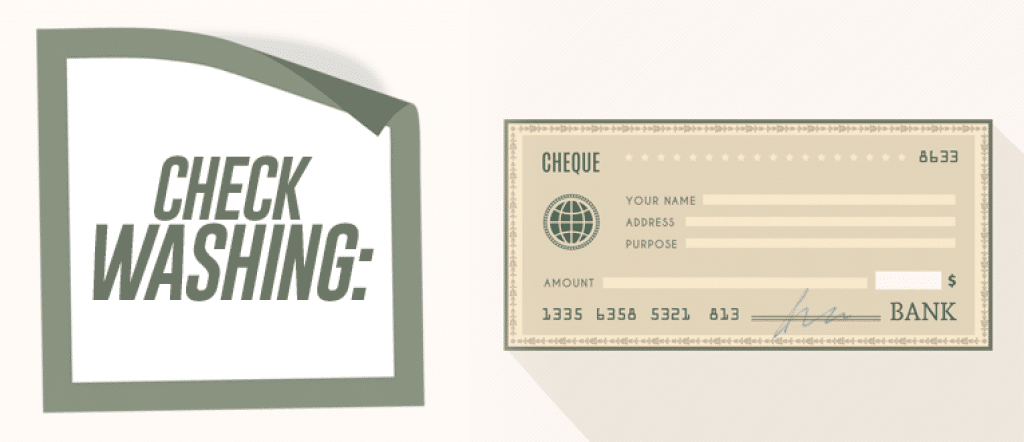What is Check Washing?
Check washing deals with erasing check content in order to let them be re-written.
It was first introduced by Frank Abagnale back in the 1960’s.
Removal of inks is done by use of relative solvents.
For instance, if the ink that was used is a polar ink, then a polar solvent is used to clear the ink.
Non-polar ink on the other hand just needs a non-polar solvent.
The process is so simple that it can be done within a very short time.
Other chemicals for household chores are also used for check washing.
Among the chemicals that have been reportedly used, acetone is at the peak.
Others include:
- fox IT
- benzene
- carbon tetra-chloride
- chloromice T
- common household bleach
- clear correction fluids
Numerous local bank customers complain of check washing fraud.
Checks are stolen from mail simply using acetone.
Statistics show that check washing accounts for more than $15 million each year.
Recently, 73% of US banks got a loss of $893 million due to check washing.
A large percentage of the fraud has been reported in police stations.
Actually, it accounts up to 90% of the crime. Criminals are severely punished for this fraud.
A fine of $250,000 or more can be imposed or adjacently a five year imprisonment.
Therefore, inspection services recommend reporting any case for arresting or even prosecution.
Check Washing Remedies
What should one do in order to prevent check washing? Here are some remedies.
- Consider paying your bills online. In this kind of transaction, there won’t be a check to wash.
- Enforce the use of cash washing resistance pens. Good example is a gel pen which is highly resistant to solvents. Avoid inks that can easily be erased like blue ball-point pens and permanent markers. A roller-ball is also good to be used.
- Pay attention to bank statements as soon as you receive them. This will enable one to confirm whether his/her account figures have not been altered. Banks usually give a period of thirty days of correction. Thereafter, a bank is not liable for any loss.
- Have knowledge on how to identify a washed check. For instance, if the paper is grayish in color there is nothing to doubt. Check to see if the print is in a variety of texts. If the text differs, then be wary of check washing.
Most important is securing your mail.
Lock your mail box and make good use of a shredder.
[/vc_column_text][/vc_column][/vc_row]

I remember quite a while ago purchasing a package of pens that were for writing checks. I honestly just bought them because I liked them – I had no idea what check washing was at the time. But I’m glad to be aware of it now, and even happier to know that there are specific tools available to help protect yourself against this kind of thing.
I have even heard of this crime. It is also surprising to me that it accounts for so much crime when it seems to be a lot of work compared to other types of things criminals can do to get some cash. The tips you provide here to avoid the scams are good and would work for anyone these days.
I thought this was an old school method of check fraud. Are you serious that it is still happening? It is amazing to me that someone figured out it will work and then took the risk to confirm it. Great tips!
The good news with check washing is that it doesn’t happen nearly as much as it used to. I might write 5 checks a year now since everything is digital. But there are still people out there that do (mostly elderly) that won’t adhere to current technology. You should still keep aware of the types of check washing scams that are out there.
I know right? You need to thank Frank Abagnale (Leonardo Dicaprio’s character in “Catch Me If You Can”). He is one of the pioneers of this clever trick. Believe it or not, it still happens so make sure to keep aware.
Yeah Chris, it’s still happening somehow. Banks have gotten much better at catching on check washing. However, after 40 years of this stuff going on, you would have thought this would have been eradicated by now don’t you think?